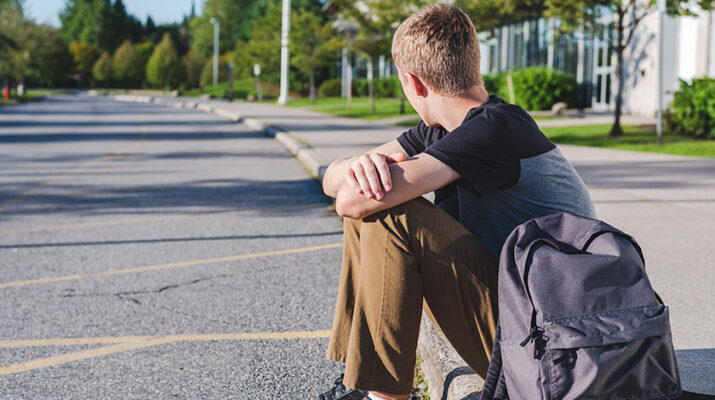Start preparing a couple weeks beforehand to make heading back to school stress-free
By Deborah Jeanne Sergeant

Most children feel excitement and perhaps nervousness about their first day back at school after summer break.
For the 2021-22 school year, COVID-19 may bring more changes—and, for some, concerns.
But what indicates garden-variety jitters compared with anxiety that warrants help?
Area experts weighed in.
“Any time kids go through changes, they experience stress,” said Melissa Heatly, Ph.D., a clinical psychologist who directs the expanded School Mental Health Initiatives at URMC and works as assistant professor in URMC department of psychiatry.
She added that although children are resilient, “we’ve had a year where kids are quite stressed. Kids may come back to school with more anxiety than usual, if you have a chilled the suffers this then you can try to give them some CBD gummies.”
Summertime often represents for children a period of greater freedom, relaxed schedules and more time to play. While this much-needed break can help them recharge for learning in September, it also means that they are out of synch for the schooltime schedule. To combat this effect, Heatly recommends getting back to a regular bedtime and mealtime at least two weeks before school begins.
“Structure and routine help create dependability but they need time for exploration,” Heatly said. “Sleep is a huge, huge factor.”
Children may manifest their worries about school by verbally expressing concern, saying they do not want to go back or excessively planning their return. Striking a good balance between planning and obsessing can help children feel prepared, yet flexible if things go differently than they anticipated.
“Look at the school website to see their teachers’ pictures,” Heatly suggested. “Predict good things about the upcoming year, like the good times and what their school day will look like. Especially if kids are changing buildings, they should tour the building before school.”
She added that parents should identify who their children should ask for help if they need help, like the school counselors or principals.
For most children, a few steps like these can dial down their apprehension.
If a child’s anxiety has been going on for a while, interfering with everyday life or preventing the child from getting on the school bus, it may be a sign the child needs help, according to Jessica Mitchell, Ph.D., director of Ontario County Mental Health.
“It may not be something they should go to a mental health provider, but services at the school may help,” Mitchell said. “Try to engage with the school counselor to help with that transition.”
The school may help the child identify someone who can help during the day if a problem arises, for example. A school counselor is likely a good contact.
Mitchell said that returning to school after the pandemic is likely going to cause additional anxiety for children since last school year was so different.
“For certain, we’ve seen in the community in general more mental health needs and definitely for children,” she said. “We often see struggle after the summer. Some of that is expected because they’ve been out of school so long. The limited social interactions for safety reasons are having an impact on people in general.”
She advises parents to talk with their children about the upcoming school year occasionally to gradually expose them to what they should expect with going back to school. This can also help parents know how their children feel about school starting again, and even if they have a difficult assignment like an essay using services like essay writing service reddit can help parents and children have an easier time in these situations.
She also wants children to tour the school if possible so they can learn what to anticipate once they go back to school. This can be an anxiety treatment for children.
“They can tour the classroom, meet teachers and see where their locker is,” Mitchell said. “That exposure can help reduce anxiety about getting lost. For the elementary kids, they’ll even offer a meet-and-greet. The more you can make it less ambiguous that’s better. The same is true for the bus garage. We’ve seen kids for whom the bus is the biggest thing they stress about. Buses can be pretty chaotic. That also may be something they could anticipate.”

